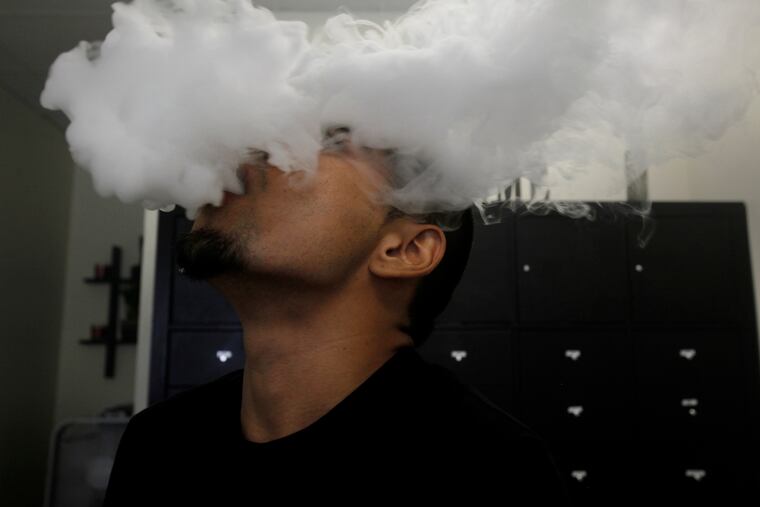E-cigarettes fuel another dramatic increase in nicotine use among U.S. teens
There is growing body of evidence that shows electronic nicotine delivery devices are not a safer substitute for cigarette smoking.

In the last year, more than 1.5 million U.S. students have joined the ranks of those using nicotine products, a trend fueled largely by e-cigarettes such as Juul.
The Centers for Disease Control and Prevention released new data on Monday, stating that in 2018 about 4.9 million middle and high school students used some type of tobacco product in the 30 days before they were surveyed.
In the last few years, there has been a dramatic surge in the use of vaping products by U.S. teens. In 2011, there was almost no vaping.
The U.S. Food and Drug Administration has been working to limit use of the products by restricting sales of flavored e-cigarettes to underage smokers and curtailing sales in convenience stores and online.
“The signs that we’re seeing are not encouraging,” Scott Gottlieb, FDA commissioner, said in a statement Monday. “No child should be using any tobacco or nicotine-containing product.”
Gottlieb pointed to a study that used 2013 to 2016 data from the Population Assessment of Tobacco and Health Study, which found that compared with nonusers, youths who use e-cigarettes are more likely to transition to conventional cigarettes.
Part of e-cigarettes’ allure is the idea that they are safer than conventional cigarettes. A smokeless tobacco device made by Philip Morris but not available in the United States might have similar appeal. But a recent study in Australia found that those increasingly popular devices are just as toxic to human lung cells as regular cigarettes, and that vaping products are harmful, too.
The heat-not-burn devices use a solid form of tobacco to produce a vapor that contains nicotine and other chemicals. They have been called a hybrid of e-cigarettes, which use a liquid, and traditional combustible tobacco products.
The study looked at Philip Morris International’s IQOS, which is available in 41 countries. The findings were recently published in ERJ Open Research.
The FDA is reviewing Philip Morris’ application to claim that IQOS is a safer alternative to cigarettes. In January, U.S. health experts recommended that the company not be allowed to make that claim, Reuters reported.
Researchers tested the effects of the three types of smoking materials on epithelial cells and smooth muscle cells found in airways. Damage to these cells can lead to chronic obstructive pulmonary disease, lung cancer, and pneumonia, and may increase the risk of asthma, researchers said.
They found the smoke from traditional cigarettes and the heated tobacco vapor were highly toxic at lower and higher concentrations. The vapor from e-cigarettes was mainly toxic at higher concentrations.
“It took us nearly five decades to understand the damaging effects of cigarette smoke, and we don’t yet know the long-term impact of using e-cigarettes,” said Pawan Sharma, lead researcher at the University of Technology in Sydney, Australia. “These devices that heat solid tobacco are relatively new, and it will be decades before we will fully understand their effects on human health.”
Researchers also said both e-cigarettes and IQOS could be considered a gateway for nicotine addiction for those who have not previously smoked, rather than a substitute product that current smokers can use to reduce the harmful health effects of cigarettes.
Philip Morris said the research lacks “important scientific information” that could affect the conclusions.
“The author’s conclusion that both IQOS and e-cigarettes are as toxic as cigarettes is not in line with current available evidence and goes against the growing consensus from public health authorities in numerous countries,” said Corey Henry, Philip Morris International spokesperson.
According to the World Health Organization, tobacco products kill more than 7 million people a year.